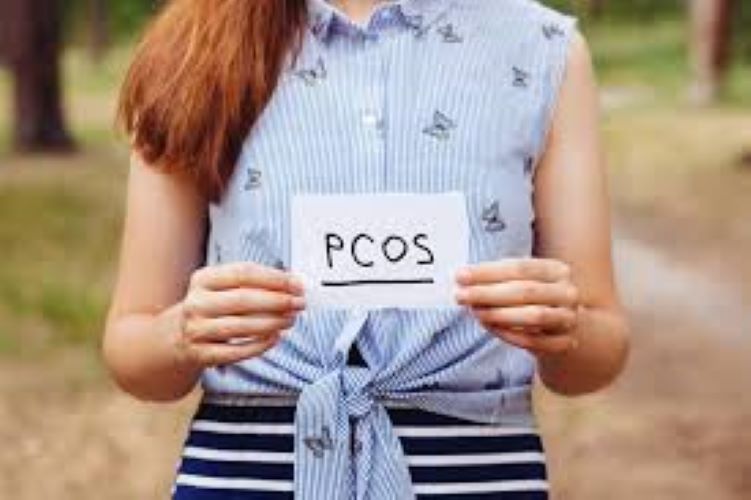Understanding and managing PCOS in teenage girls

Dr Sowparnika S N
PCOS diagnoses have surged among younger individuals, yet awareness remains low despite its prevalence as the most common female endocrine disorder and a leading cause of infertility. Affecting 6-26 per cent of women globally and 3.7-22.5 per cent in India, PCOS is characterised by chronic anovulation, irregular periods, hirsutism, and weight gain. Although the terms PCOS and PCOD are more recognised today, many still fail to grasp the condition’s severity or recognise its symptoms, leading to delayed diagnosis and treatment. Understanding and managing one’s body with a health-conscious lifestyle is crucial.
PCOS and the Role of Androgens in Hormonal Imbalance
An overabundance of androgens—a class of hormones linked to masculine features and reproductive processes, though they are also present in smaller amounts in females—are produced by the ovaries in patients with polycystic ovarian syndrome (PCOS), a hormonal disorder. Unequal menstrual cycles, abnormal ovulation, and missed periods can all be caused by this hormonal imbalance. Even though anovulation, or the absence of ovulation, can cause tiny follicular cysts to form on the ovaries, anovulation alone does not require the appearance of these cysts to diagnose PCOS.
PCOS is a major cause of infertility in women and AFAB individuals, raising the risk of other health issues. Symptoms usually start around puberty but may not show until the late teens or early 20s and can change over time.
Leading Cause of Infertility and Its Varied Symptoms
PCOS presents with a range of symptoms, including irregular periods, excessive hair growth (hirsutism), persistent acne, and difficulty maintaining a healthy weight, with 40% to 80% of affected individuals experiencing obesity. Skin darkening, particularly in areas like the neck, armpits, and groin, is also common, along with the appearance of ovarian cysts visible on ultrasound. Other signs include skin tags, thinning hair or balding, and infertility due to irregular ovulation. It’s possible to have PCOS without noticeable symptoms, and some may only discover the condition when facing challenges with conception or unexplained weight gain. Mild cases may have symptoms that are subtle and easily overlooked.
The Complex Causes of PCOS
The exact cause of PCOS is unknown, but genetics, obesity, and other factors likely play a role. High androgen levels and insulin resistance, common in PCOS, disrupt ovulation and may lead to elevated blood glucose and diabetes. Low-grade inflammation is also common in PCOS. While it can increase the risk of pregnancy complications like gestational diabetes and preterm birth, most individuals with PCOS can still achieve successful pregnancies.
Early Detection and Lifestyle Management for Effective PCOS Treatment
Many individuals remain unaware of PCOS in its early stages, leading to untreated symptoms. It’s crucial to consult a gynecologist if symptoms appear for proper diagnosis and treatment.
Lifestyle Management: PCOS can often be managed with lifestyle changes, such as healthier eating, reduced calorie intake, and regular exercise.
Dietary Tips: Focus on a low-carb, protein-rich diet like the Atkins diet, stay hydrated, and maintain regular meal times.
Physical Activity: Engage in regular exercise like sports, aerobics, and fitness programs to maintain physical fitness, build muscle, and manage weight.
Mental and Sleep Health: Practice yoga, and meditation, and maintain a proper sleep schedule (6-8 hours) for better mental health.
Medical Treatment: Follow prescribed treatments, such as hormonal therapy for cycle regularization and diabetic medications for metabolic health, as needed for symptom management.
Stress Management: Reduce stress to control cortisol and insulin levels.
Diet Adjustments: Opt for healthier food choices, avoiding refined flour, high sugar, processed, or packaged foods. Some may benefit from gluten- and dairy-free diets to reduce inflammation and manage weight.
Mental Health, Self-Esteem, and The Importance of Timely Medical Consultation
PCOS can significantly impact self-esteem due to the physical changes and health issues it causes. Symptoms can vary from person to person, but the underlying problem remains consistent. It’s important to take preventive measures to reduce the severity of symptoms and support emotional health. Starting with small, manageable changes can lead to effective results. After diagnosis, consult a gynecologist for medications that can regulate the menstrual cycle and control excess hair growth or acne by managing androgen levels. If these hormonal treatments are ineffective, a dermatologist may offer further solutions.
Addressing anxiety or depression is also crucial. Speaking with a therapist and creating a supportive environment can help build confidence and improve mental well-being. Lastly, many women, despite recognizing the signs of PCOS, may self-medicate or delay seeking treatment, which can lead to future health risks. It’s essential to consult a gynecologist promptly upon noticing symptoms to ensure timely and effective treatment.
Dr Sowparnika S N is Reproductive Medicine Consultant
at Milann Fertility Center, in Bengaluru

